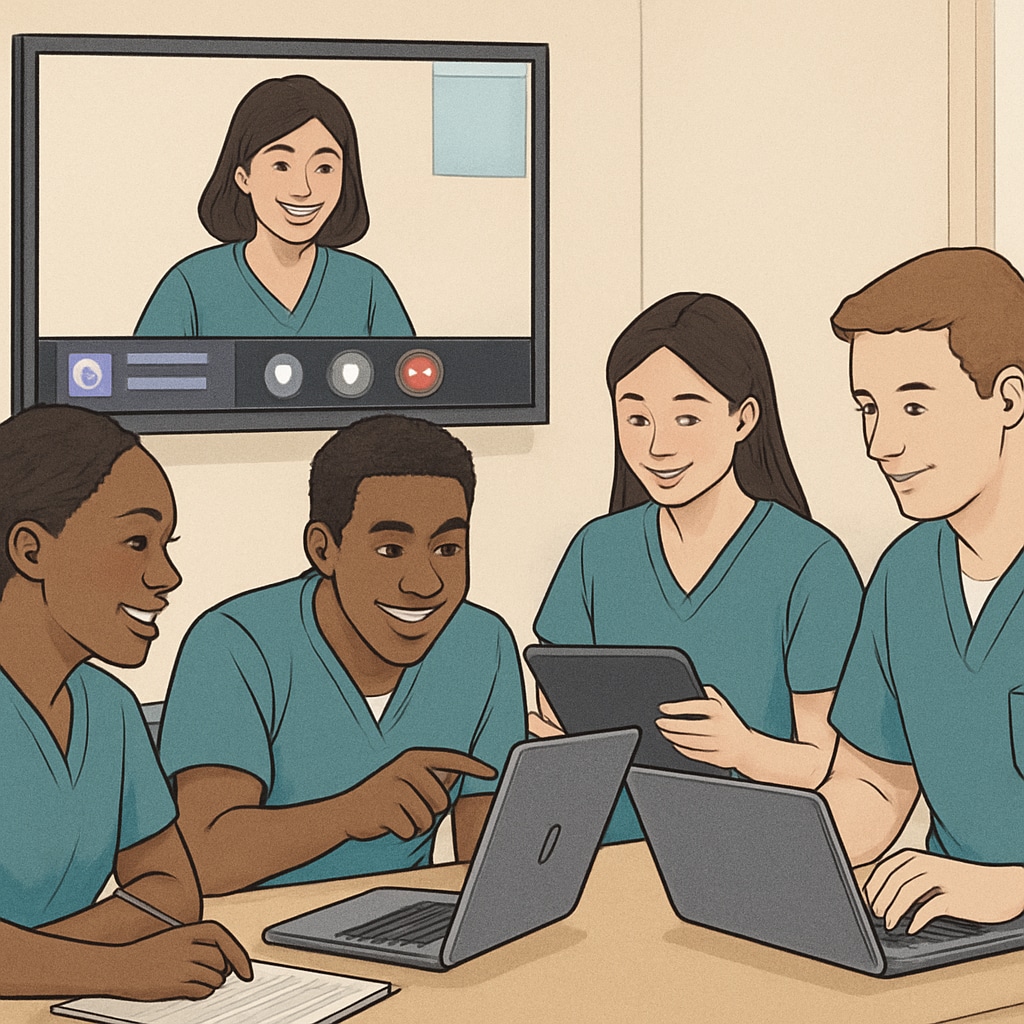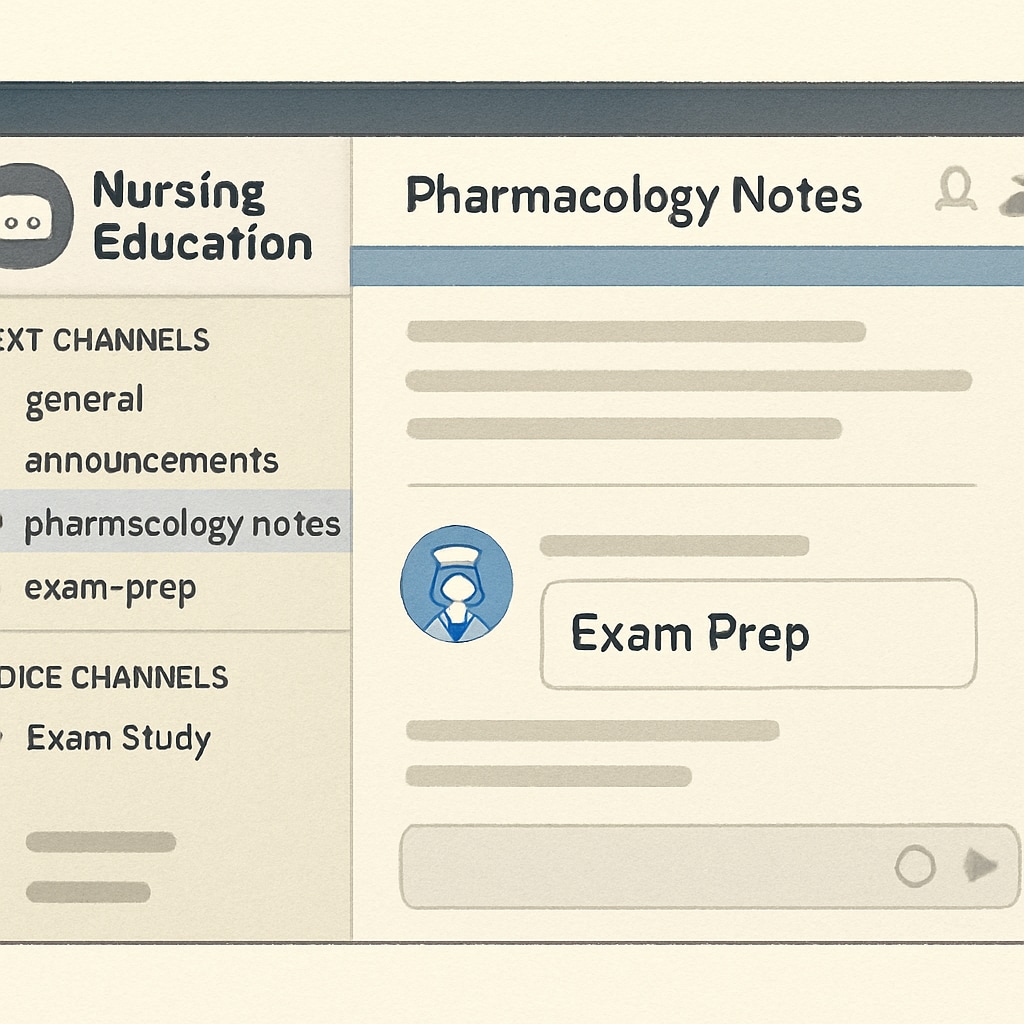Nursing students, study groups, and Discord communities are increasingly vital tools for fostering collaboration and early career development in healthcare education. In the K12 stage, these resources can play a transformative role in cultivating interest, teamwork, and professional identity among aspiring healthcare professionals. This article explores the importance of building learning networks for nursing students, highlights actionable strategies, and introduces practical platforms like Discord to create supportive study groups.
Why Early Collaboration Matters for Nursing Students
Healthcare careers often demand strong interpersonal skills, teamwork, and a deep sense of empathy—all traits that can be nurtured through early collaboration. For nursing students, participating in study groups or online communities during their formative years provides opportunities to build these essential skills. Additionally, it helps them gain exposure to real-world healthcare challenges and solutions, creating a foundation for lifelong learning and professional growth.
Study groups have proven benefits, including peer-to-peer learning, emotional support, and enhanced knowledge retention. Platforms like Discord, originally designed for gamers, now serve as a modern hub for educational communities, offering tools to connect students worldwide. These digital spaces are particularly useful for nursing students who can share resources, discuss case studies, and prepare for exams collaboratively.

Using Discord to Build Study Groups for Nursing Education
Discord has emerged as one of the most accessible platforms for creating online study groups. Its customizable servers, chat channels, and voice chat features make it a perfect choice for nursing students looking to connect and collaborate. Setting up a Discord server for nursing education is straightforward and can offer a multitude of benefits:
- Real-Time Communication: Students can engage in real-time discussions using text or voice channels, promoting active learning.
- Resource Sharing: Discord servers allow members to upload and share educational materials such as notes, videos, and exam prep guides.
- Community Building: Nursing students can bond over shared interests and challenges, creating a sense of camaraderie.
- Flexible Organization: Channels can be organized by topics, such as anatomy, pharmacology, or clinical case studies.
By leveraging Discord, nursing students can connect with peers from their schools or even globally, breaking down geographical barriers to access diverse perspectives and resources. For example, servers like “Future Healthcare Professionals” and “Nursing Study Hub” have become thriving communities for students pursuing healthcare careers.

Practical Strategies to Build Learning Networks
Creating effective study groups and learning networks for nursing students requires intentional planning and resource management. Here are some actionable strategies:
- Define Goals: Establish clear objectives for your study group, such as exam preparation, case study discussions, or skill-building activities.
- Choose the Right Platform: Platforms like Discord, Slack, or Google Meet offer unique features, so pick one that aligns with your group’s needs.
- Encourage Diversity: Invite members with varying expertise and interests to enrich discussions and broaden perspectives.
- Schedule Regular Meetings: Consistency is key; set a fixed schedule for group activities to ensure optimal participation.
- Track Progress: Use tools like shared calendars or project management apps to monitor milestones and achievements.
In addition, educators and mentors can play a crucial role in facilitating these networks by offering guidance, sharing resources, and encouraging active participation among students. For example, educators can recommend websites like Britannica for trusted medical references or guide students toward reputable forums on Wikipedia’s medical education page.
The Long-Term Impact of Learning Communities
Building learning networks early in a nursing student’s journey can have long-lasting effects. By joining study groups and online communities, students not only gain academic support but also develop professional relationships that may prove invaluable in their careers. Moreover, these collaborative environments foster a culture of lifelong learning, adaptability, and resilience, which are indispensable qualities in the rapidly evolving healthcare industry.
As a result, nursing students equipped with these collaborative tools are more likely to thrive both academically and professionally, ensuring a smoother transition from education to practice.
Final Thoughts: The combination of study groups, platforms like Discord, and innovative strategies can significantly enhance the educational experience for nursing students. By fostering early collaboration and community-building, educators and students can pave the way for a more connected and competent healthcare workforce.


